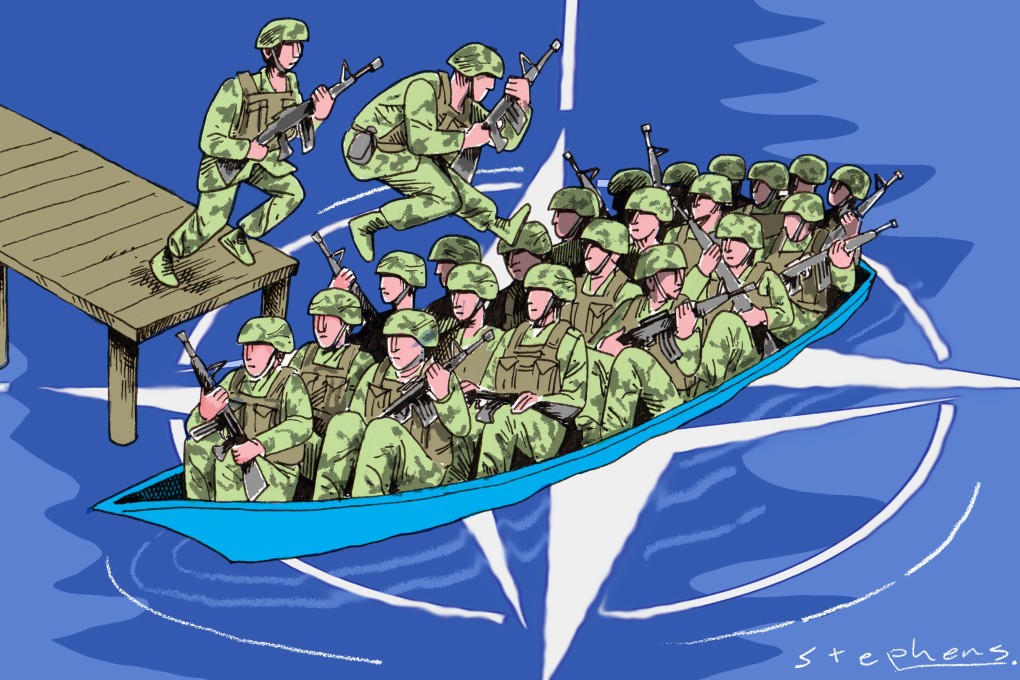Advertisement
Opinion | Nato’s latest expansion plan could be beginning of the end as waning West targets ‘Russia threat’
- The Ukraine war is just a continuation of the Cold War as Nato and Russia vie for spheres of influence
- The conflict has bolstered Nato solidarity for the time being, but as the West continues to decline, the transatlantic alliance will wane
Reading Time:4 minutes
Why you can trust SCMP
22

When the audience at a concert hears a singer hitting the highest note, they know the song is probably coming to an end. And Nato’s future will be much the same: when Sweden and Finland join – a sure thing in the near future – the 32-member transatlantic alliance may well have reached the end of its expansion.
Advertisement
Of the other three candidates on the waiting list for Nato membership, Georgia and Ukraine’s requests appear doomed by Russia’s warring response. It remains to be seen whether Moscow would react as it has warned if Bosnia and Herzegovina takes steps towards joining Nato, but the alliance might also think twice after seeing what has occurred in Ukraine.
The Cold War in Europe never really ended with the fall of the Soviet Union. The battlefield in Ukraine is a stage of continued rivalry for spheres of influence between Nato and Russia.
Does Russia have a legitimate sphere of influence? If Moscow believes there is one, and would fight for it, then it does. This is easy to understand if one thinks of how the United States reacted when the Soviet Union placed missiles at its doorstep in 1962. The Cuban missile crisis brought the world close to the brink of an all-out nuclear war.
Military alliances survive on “threats”. If they fail to find one, they will create one. But for a juggernaut such as Nato to survive, it needs to constantly expand.
Advertisement
Examples of Nato seeking out threats can be seen in the 78-day bombing of Belgrade in 1999 during the war in Kosovo. It can also be seen in the 2011 operation by a Nato-led coalition against Libya and its ruler Muammar Gaddafi. The operation led to Gaddafi’s ousting and the country was plunged into the depths of civil war.

Advertisement
